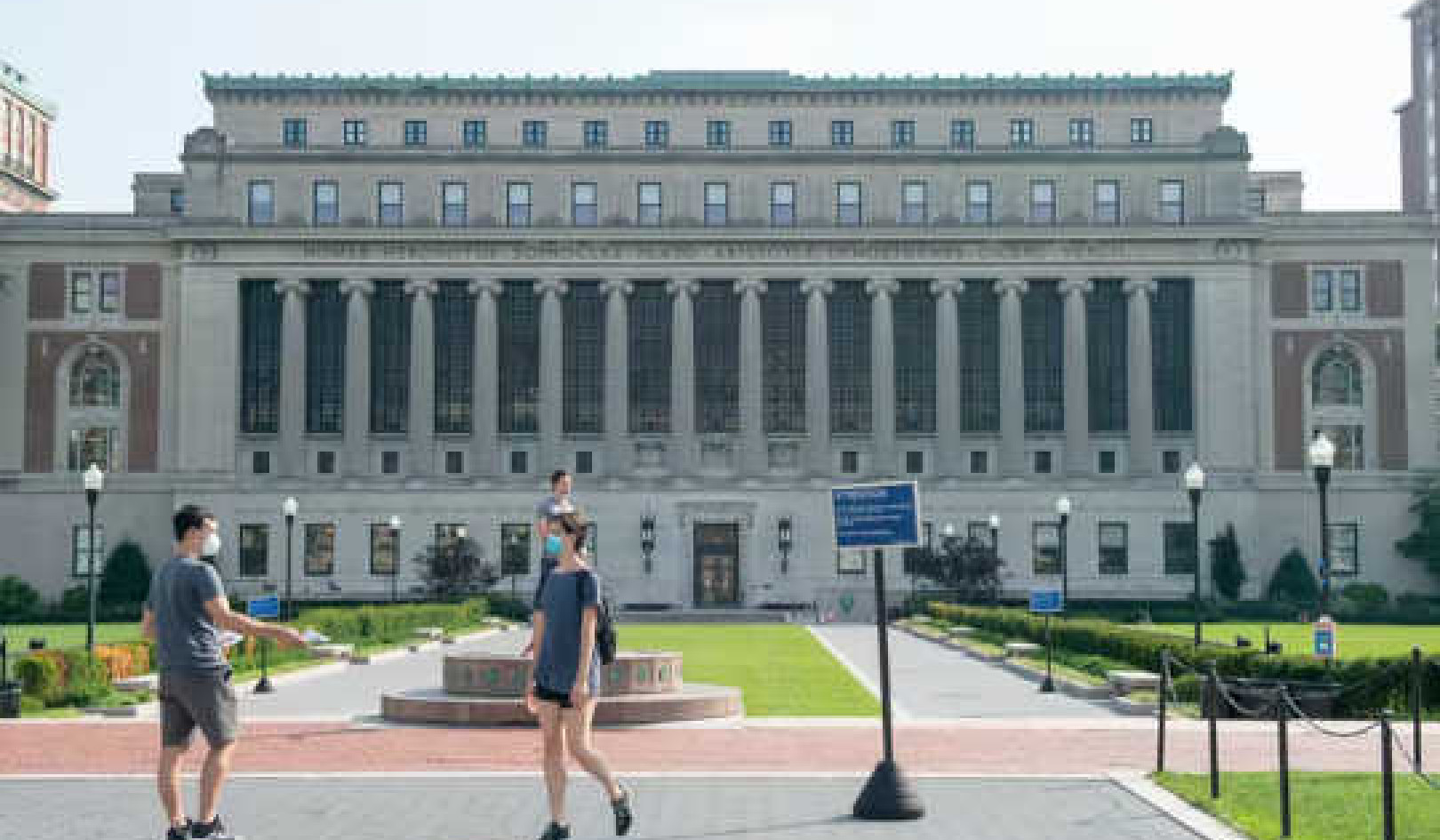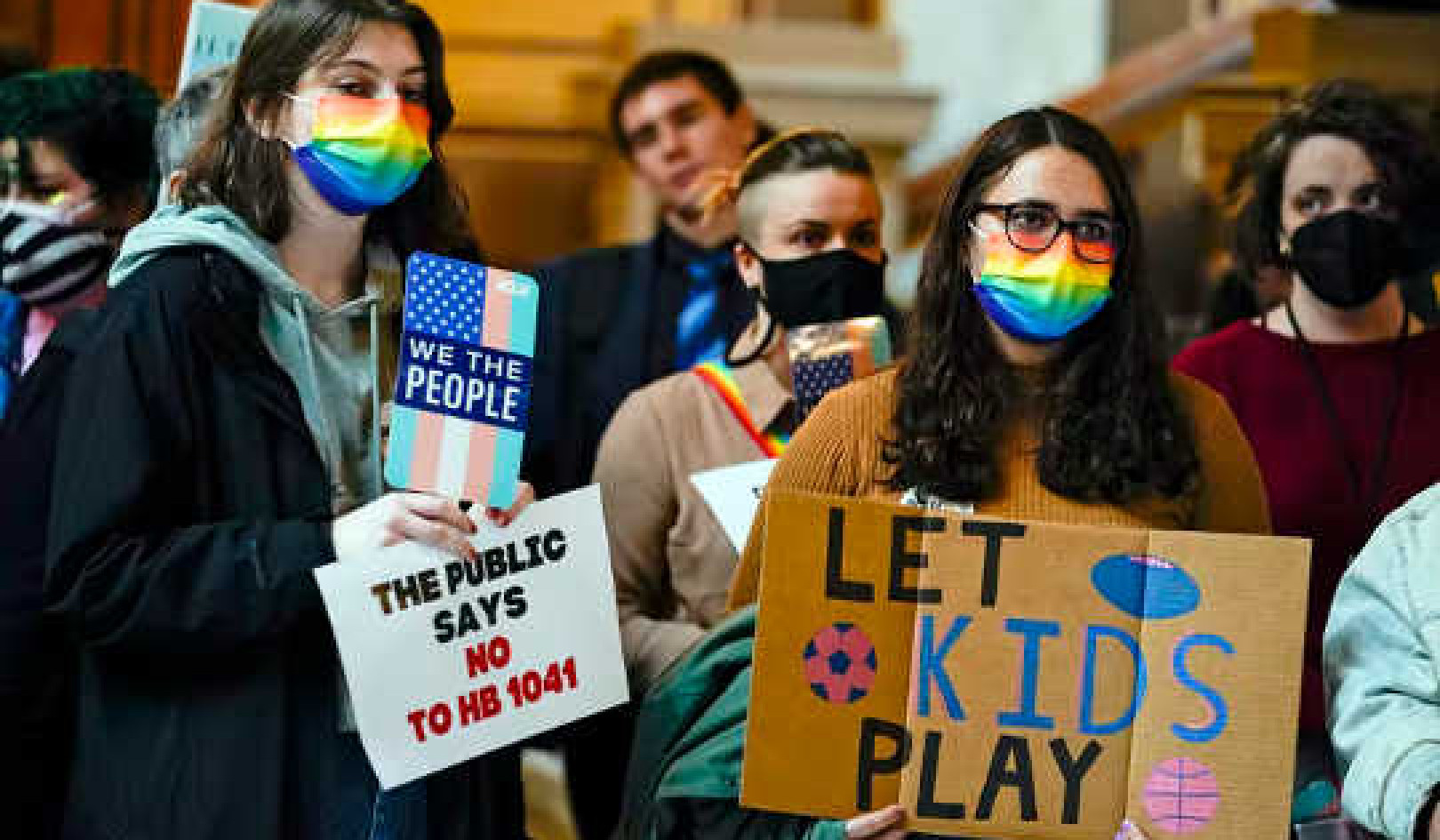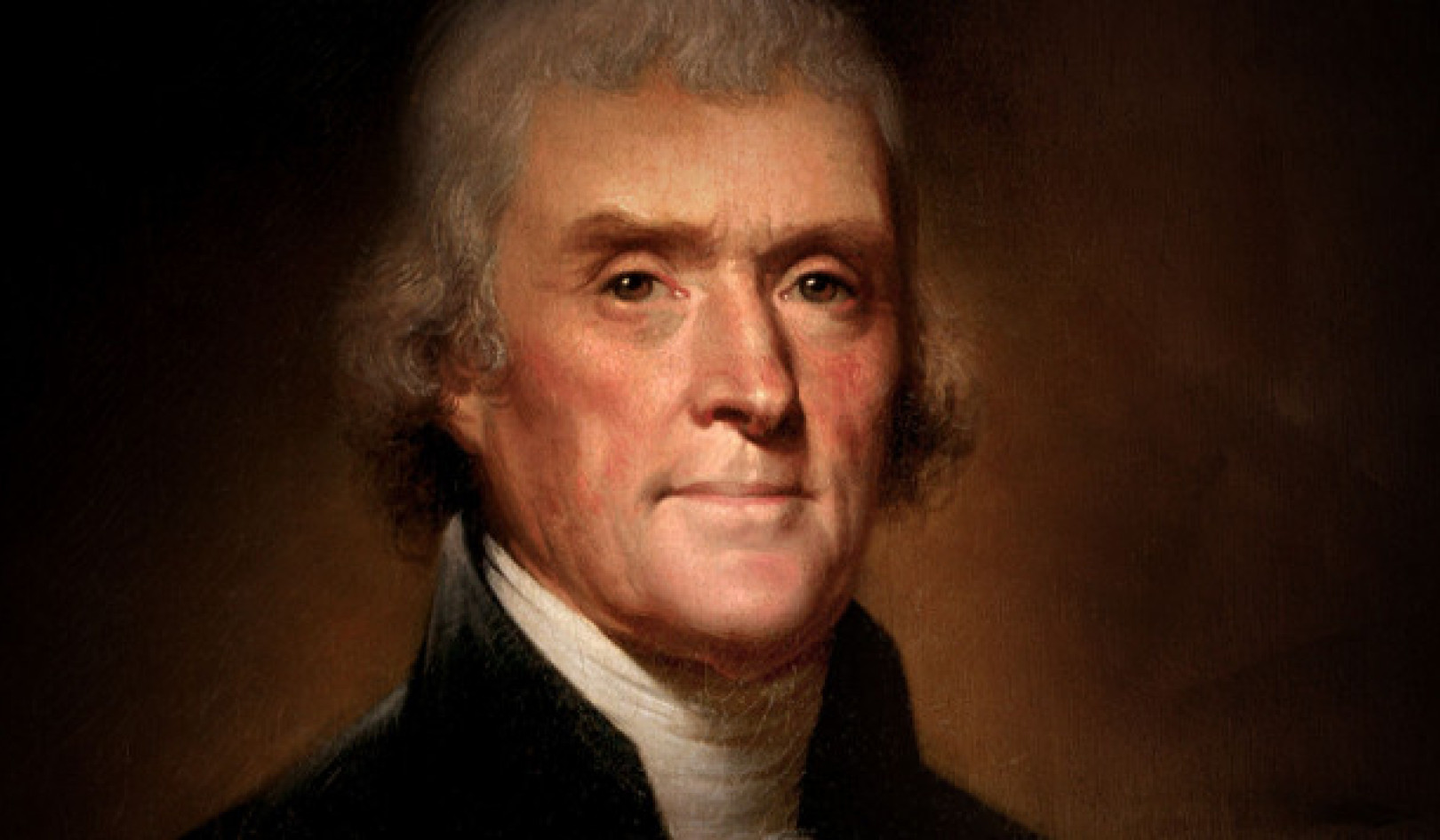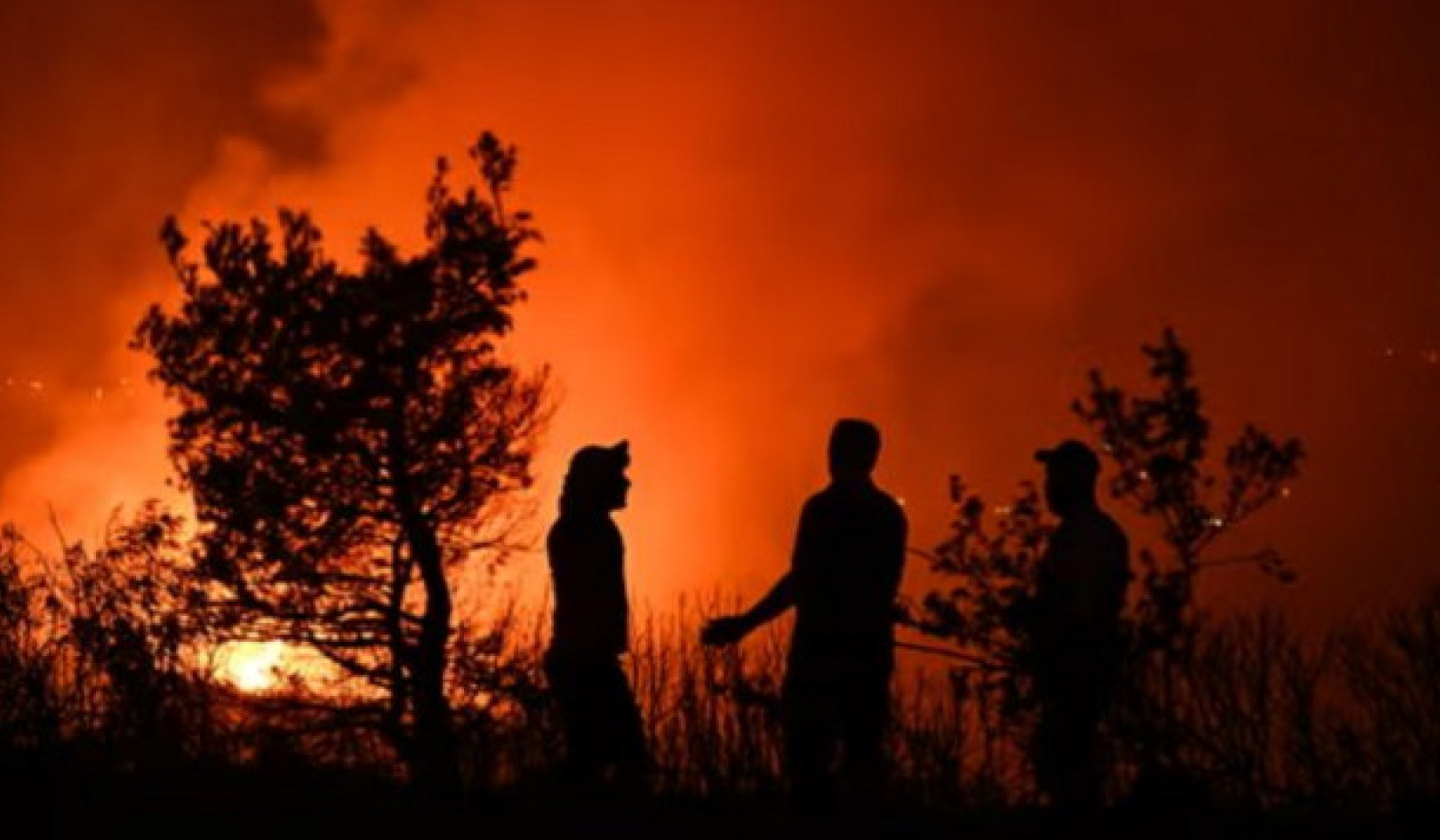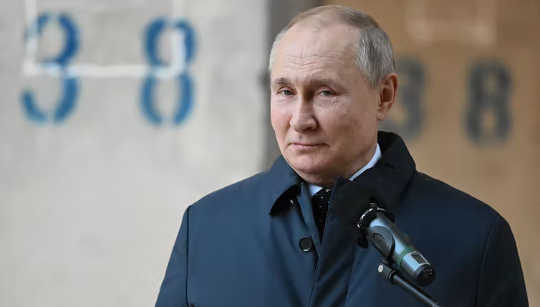
Russian President Vladimir Putin uses words to mean the opposite of what they really mean. Sergei Guneyev/SPUTNIK/AFP via Getty Images
If you’ve been paying attention to how Russian President Vladimir Putin talks about the war in Ukraine, you may have noticed a pattern. Putin often uses words to mean exactly the opposite of what they normally do.
He labels acts of war “peacekeeping duties.”
He claims to be engaging in “denazification” of Ukraine while seeking to overthrow or even kill Ukraine’s Jewish president, who is the grandson of a Holocaust survivor.
He claims that Ukraine is plotting to create nuclear weapons, while the greatest current threat of nuclear war appears to be Putin himself.
Putin’s brazen manipulation of language is drawing attention. Kira Rudik, a member of the Ukrainian Parliament, recently said of Putin in a CNN interview:
“When he says, ‘I want peace,’ this means, ‘I’m gathering my troops to kill you.’ If he says, ‘It’s not my troops,’ he means ‘It’s my troops and I’m gathering them.’ And if he says, ‘OK, I’m retreating,’ this means ‘I’m regrouping and gathering more troops to kill you.’”
As a philosophy professor who studies the British author George Orwell, I am reminded by Rudik’s comments about Putin of another set of claims: “War is peace. Freedom is slavery. Ignorance is strength.” These are the words etched onto the side of the building for the government agency called the “Ministry of Truth” in Orwell’s dystopian novel “1984,” published in 1949.
Orwell uses this feature of the novel to draw attention to how totalitarian regimes – like the book’s fictional state of Oceania – perversely warp language to gain and retain political power. Orwell’s keen understanding of this phenomenon was the result of having witnessed it himself.
Lies more frightening than bombs
In grappling with Putin’s lies and spin, it’s helpful to look at what previous thinkers and writers, like Orwell, have said about the relationship between language and political power.
Orwell, an Englishman who lived from 1903 to 1950, experienced war, imperialism and poverty during the first half of his life. These experiences led Orwell to identify as a socialist and member of the British political left.
It might seem inevitable, then, that Orwell would have favorably viewed Soviet Communism, a leading force on the political left in Europe at the time. But this was not so.
Instead, Orwell believed that Soviet Communism shared the same defects as Nazi Germany. Both were totalitarian states where the desire for total power and control crowded out any room for truth, individuality or freedom. Orwell did not think Soviet Communism was truly socialist, but rather that it only had a socialist façade.
At age 33, Orwell served as a volunteer soldier in the Spanish Civil War. He fought with a small militia as part of a larger left-leaning coalition that was trying to stop an insurrection from Spain’s Nationalist right. This left-leaning coalition was receiving military support from the Soviet Union.
But the small militia Orwell was fighting with ultimately became a target of Soviet propagandists, who leveled a range of accusations against the militia, including that its members were spies for the other side. This was a byproduct of the Soviet Union’s attempts to use its involvement in Spain as a way of gaining political power.
Orwell observed how the militia he had fought with was maligned in the European press as part of this Soviet smear campaign. He explained in his book “Homage to Catalonia” that this smear campaign included telling demonstrable lies about concrete facts. This experience deeply troubled Orwell.
He later reflected on this experience, writing that he was frightened by the “feeling that the very concept of objective truth is fading out of the world.” That prospect, he claimed, frightened him “much more than bombs.”
Language shapes politics – and vice versa
Such fears influenced much of Orwell’s most influential writing, including his novel “1984” and his essay “Politics and the English Language.”
In that essay, Orwell reflects on the relationship between language, thought and politics. For Orwell, language influences thought, which in turn influences politics. But politics also influences thought, which in turn influences language. Thus, Orwell – like Putin – saw how language shapes politics and vice versa.
Orwell argues in the essay that if one writes well, “one can think more clearly,” and in turn that “to think clearly is a necessary first step toward political regeneration,” which I believe meant to him that a political order could recover from destructive political influences like totalitarianism. This makes good writing a political task.
Orwell’s desire to avoid bad writing is not the desire to defend rigid rules of grammar. Rather, Orwell’s goal is for language users “to let the meaning choose the word, and not the other way about.” Communicating clearly and precisely requires conscious thought. It takes work.
But just as language can illuminate thought and regenerate politics, so too language can be used to obscure thought and degenerate politics.
Putin sees this clearly and seeks to use this to his advantage.
‘Doublethink,’ ‘doublespeak’
Orwell warned against the kind of abuses of language Putin commits, writing that “if thought corrupts language, language can also corrupt thought.”
Orwell explored what mutual corruption of language and politics in a totalitarian regime looks like in his dystopian “1984.” In the world of “1984,” the only crime is “thoughtcrime.” The ruling class seeks to eliminate the possibility of thoughtcrime by eliminating the language needed to have the thoughts they had criminalized – which included any thought that would undermine the party’s totalitarian control. Limit language and you limit thought, or so the theory goes. Thus, the Russian Parliament passed, and Putin has signed, a law that could result in criminal charges for using the Russian word for “war” to describe the Ukraine war.
Orwell also uses “1984” to explore what happens when communication conforms to the desires of political power instead of demonstrable fact.
The result is “doublethink,” which occurs when a fractured mind simultaneously accepts two contradictory beliefs as true. The slogans “War is peace,” “Freedom is slavery” and “Ignorance is strength” are paradigmatic examples. This Orwellian idea has given rise to the concept of doublespeak, which occurs when one uses language to obscure meaning to manipulate others.
Doublespeak is a tool in the arsenal of tyranny. It is one of Putin’s weapons of choice, as it is for many authoritarians and would-be authoritarians around the world. As Orwell warned: “Power is in tearing human minds to pieces and putting them together again in new shapes of your own choosing.”![]()
About The Author
Mark Satta, Assistant Professor of Philosophy, Wayne State University
This article is republished from The Conversation under a Creative Commons license. Read the original article.

Related Books:
On Tyranny: Twenty Lessons from the Twentieth Century
by Timothy Snyder
This book offers lessons from history for preserving and defending democracy, including the importance of institutions, the role of individual citizens, and the dangers of authoritarianism.
Click for more info or to order
Our Time Is Now: Power, Purpose, and the Fight for a Fair America
by Stacey Abrams
The author, a politician and activist, shares her vision for a more inclusive and just democracy and offers practical strategies for political engagement and voter mobilization.
Click for more info or to order
How Democracies Die
by Steven Levitsky and Daniel Ziblatt
This book examines the warning signs and causes of democratic breakdown, drawing on case studies from around the world to offer insights into how to safeguard democracy.
Click for more info or to order
The People, No: A Brief History of Anti-Populism
by Thomas Frank
The author offers a history of populist movements in the United States and critiques the "anti-populist" ideology that he argues has stifled democratic reform and progress.
Click for more info or to order
Democracy in One Book or Less: How It Works, Why It Doesn't, and Why Fixing It Is Easier Than You Think
by David Litt
This book offers an overview of democracy, including its strengths and weaknesses, and proposes reforms to make the system more responsive and accountable.

















